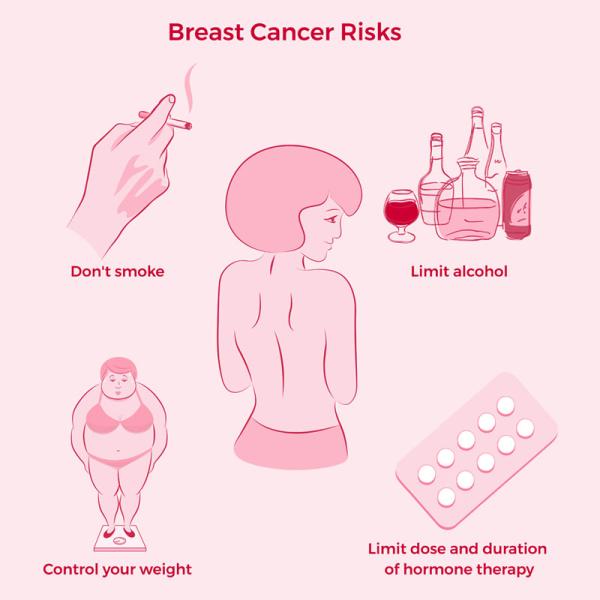| Your risk of developing breast cancer depends on many factors, including your age, family history (especially if a close relative had breast cancer at a young age), genetic mutations (like BRCA1 and BRCA2), race/ethnicity, density of your breast tissue, lifestyle choices (such as diet, exercise, alcohol consumption, and smoking), and prior radiation exposure. While some factors are unchangeable, adopting a healthy lifestyle can reduce your risk, and regular screenings like mammograms are crucial for early detection. Ultimately, individual risk assessment requires a consultation with a healthcare professional. 
The likelihood of getting breast cancer depends on many factors, making it impossible to give a single answer applicable to everyone. However, we can break down the key influences:
Factors Increasing Risk:- Age: Risk increases significantly with age, with the majority of breast cancers diagnosed in women over 50.
- Family History: Having a close relative (mother, sister, daughter) with breast cancer, particularly at a young age, significantly raises your risk. A family history of ovarian cancer also increases risk. Genetic mutations like BRCA1 and BRCA2 further elevate the risk.
- Genetics: Specific gene mutations, including BRCA1, BRCA2, TP53, and others, can dramatically increase breast cancer risk. Genetic testing can identify these mutations.
- Race/Ethnicity: White women are slightly more likely to develop breast cancer than women of other races, but Black women are more likely to die from it, suggesting disparities in diagnosis and treatment access.
- Personal History: A previous breast biopsy showing atypical hyperplasia or lobular carcinoma in situ (LCIS) increases risk. Having had radiation therapy to the chest area also increases risk.
- Reproductive History: Early menarche (first menstrual period), late menopause, having your first child after age 30, not breastfeeding, and never having children are all associated with increased risk.
- Lifestyle Factors: Obesity, lack of physical activity, alcohol consumption, and hormonal replacement therapy (HRT) after menopause can elevate risk.
- Dense Breast Tissue: Women with dense breast tissue have a slightly higher risk.
Factors Decreasing Risk (or potentially protective):- Regular Exercise: Physical activity is associated with a lower risk.
- Maintaining a Healthy Weight: Obesity increases risk, so maintaining a healthy weight is beneficial.
- Breastfeeding: Breastfeeding, particularly for longer durations, may slightly reduce risk.
- Medications: Some medications, like tamoxifen and raloxifene, can reduce risk in certain high-risk individuals.
To understand your individual risk:The best way to determine your personal risk is to consult with your doctor or a healthcare professional. They can consider your specific family history, medical history, lifestyle, and other relevant factors to assess your risk and discuss appropriate screening and preventative measures, such as mammograms, ultrasounds, or genetic testing. They can also help you understand the significance of your risk level and your options for reducing it. Online risk calculators can provide estimations, but they should not replace a consultation with a medical professional.
Tags: Breast Cancer Breast Health Cancer Awareness Cancer Risk Early Detection Genetic Testing Health Awareness Health Statistics Prevention Women Health  
|
 1,328
1,328  0
0  0
0  3350
3350 